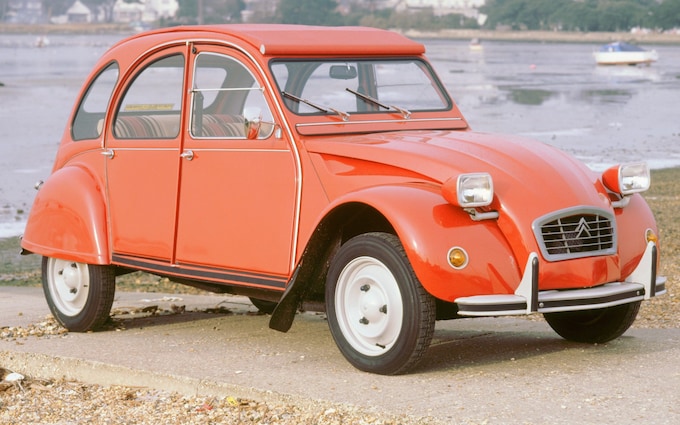The Citroën 2CV, an iconic vehicle with roots stretching back to the 1930s, may be making a return, according to recent statements from the French automaker.

Thierry Koskas, the chief executive of Citroën, indicated that the company is exploring opportunities to relaunch historically significant models. He cited Citroën’s “incredible history”, a legacy that includes the beloved 2CV, often affectionately referred to as the “tin snail”, alongside other notable vehicles such as the DS and the Saxo hot hatchback.
“The brand has an incredible history and I think it still appeals to a lot of people,” Koskas said. He further emphasized the widespread recognition garnered by the 2CV, noting that people across the globe, even in Brazil, are familiar with the car.
When questioned by reporters about the potential for an electric 2CV, Koskas’s response, which included a smile, implied that the company is considering such a move. “We don’t exclude that we will use this heritage,” he stated.

News of the 2CV’s possible return comes after Autocar magazine reported in January that Citroën was developing a “successor” to the original design, some three decades after production ceased. Originally, the carmaker had dismissed rumors of a comeback. However, the impressive sales figures of its sister brand Renault’s all-electric Renault 5 hatchback appear to have spurred a re-evaluation within Citroën’s Paris headquarters.
A launch date of 2028 is a possibility, coinciding with the 80th anniversary of the 2CV’s debut at the Paris Motor Show. The genesis of the 2CV can be traced to the mid-1930s and the Toute Petite Voiture (TPV) concept car. The project was interrupted by the Second World War, with prototypes of the TPV being concealed in basements and barns to prevent them from falling into the hands of the occupying German forces.
The revival of retro cars by their original manufacturers is becoming increasingly popular. Ford announced a deal in December with Boreham Retroworks to bring back the Mk.1 Escort. These modernised Escorts will feature engines with three times the power of the original model but will come with a hefty price tag of £300,000. Land Rover also announced the return of the classic Defender 90 and 110 models, refurbished to individual customer specifications, at a cost of £200,000 each.
This potential revival of the 2CV arrives amid significant changes in the automotive industry, including the UK government’s plans to ban the sale of new petrol and diesel cars from 2030, a move supported by then-Business Secretary Kemi Badenoch. Car manufacturers, including Stellantis, Citroën’s parent company, are currently lobbying to reverse these plans. Vauxhall, another Stellantis brand, is closing its historic Luton factory later this year as a result of the zero-emission vehicle mandate. Meanwhile, BMW, the owner of Mini, has paused plans to update the brand’s Oxford factory to build electric versions of the popular hatchback, reflecting many of the challenges currently facing the automotive industry.



